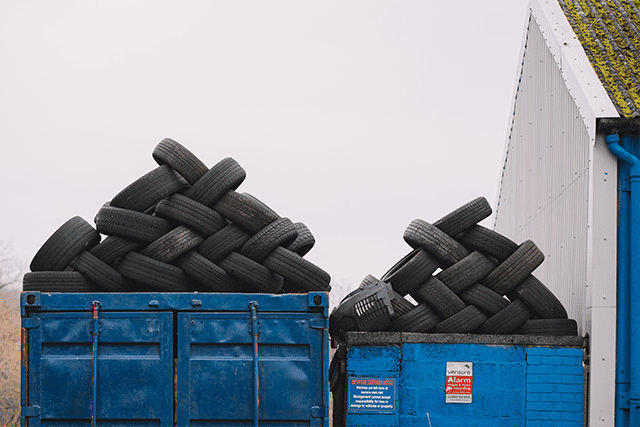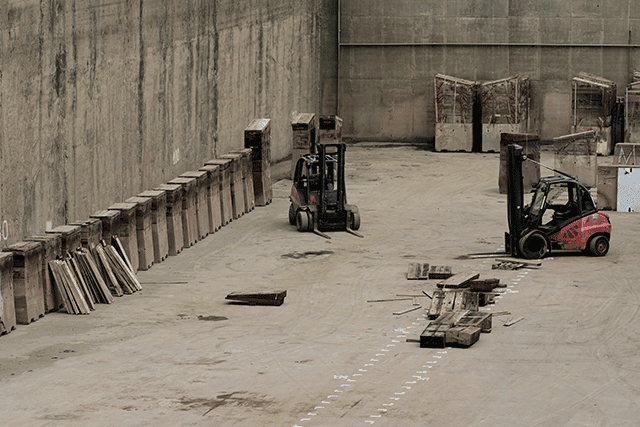Recycling Yards
In a typical recycling yard, heavy mobile machinery and staff are working in the same general area.
This immediately presents potential safety hazards such as blind spots, obstacles and poor visibility, plus human factors such as lapses in attention/ judgement or staff ignoring safety protocols.
As a result, the safe movement of/ storage of items has to be the #1 priority for any recycling yard. Introducing safety initiatives or additional safety training can help lower the on-site risks, but still the danger is a real one.

The most common safety hazards in Australian recycling yards are:
Mobile plant related incidents (collisions, tipping etc.)
Machinery/ vehicle noise
Falling/ moving objects
Worker fatigue
Strain from manual labour
Pedestrian accidents
Contact with harmful substances
Unsafe racking
Improper storage of flammable/ dangerous goods
Broken glass/ sharp objects
Respiratory hazards
Load-shifting equipment (powered mobile plant like cranes, forklifts, ride-on pallet movers, walkie stackers, pallet jacks, trolleys etc.) present pedestrian safety risks such as:
Collisions with pedestrians and/ or loads falling onto them.
Rollovers and the equipment moving unexpectedly, posing a crushing risk.
Forklifts/ cranes being unable to stop quickly.
Reduced visibility when loaded.
You can consider the layout of your recycling yard and physical barriers to separate pedestrians and vehicles, and put control measures in place to reduce risk such as:
Minimising the cross flow of traffic, intersections and eliminating blind spots.
Clearly marking pedestrian walkways or using temporary physical barriers to separate pedestrians from roadways and powered mobile plant operating areas where pedestrians and vehicles often interact based on speed limits, stopping distances and efficient workflow.
Defining areas where powered mobile plant is used as ‘pedestrian exclusion zones’ and excluding powered mobile plant from pedestrian walkways and work areas.
Using line markings and marker posts in docking areas to indicate distances from the dock.
Initiatives such as painted line markings and verbal/ written notices to stay a certain distance clear of vehicles are only effective so long as your staff and site visitors abide by these directions.
Regardless of your industry, there are also legal obligations to uphold worker safety.
With these daily risks ever present, could your Recycling Yard use a BodyGuard?

Book a free consultation!
Accidents won’t wait.
Prevent forklift accidents in narrow aisles and improve heavy equipment safety across large outdoor sites. You can always trust BodyGuard to keep watch.
